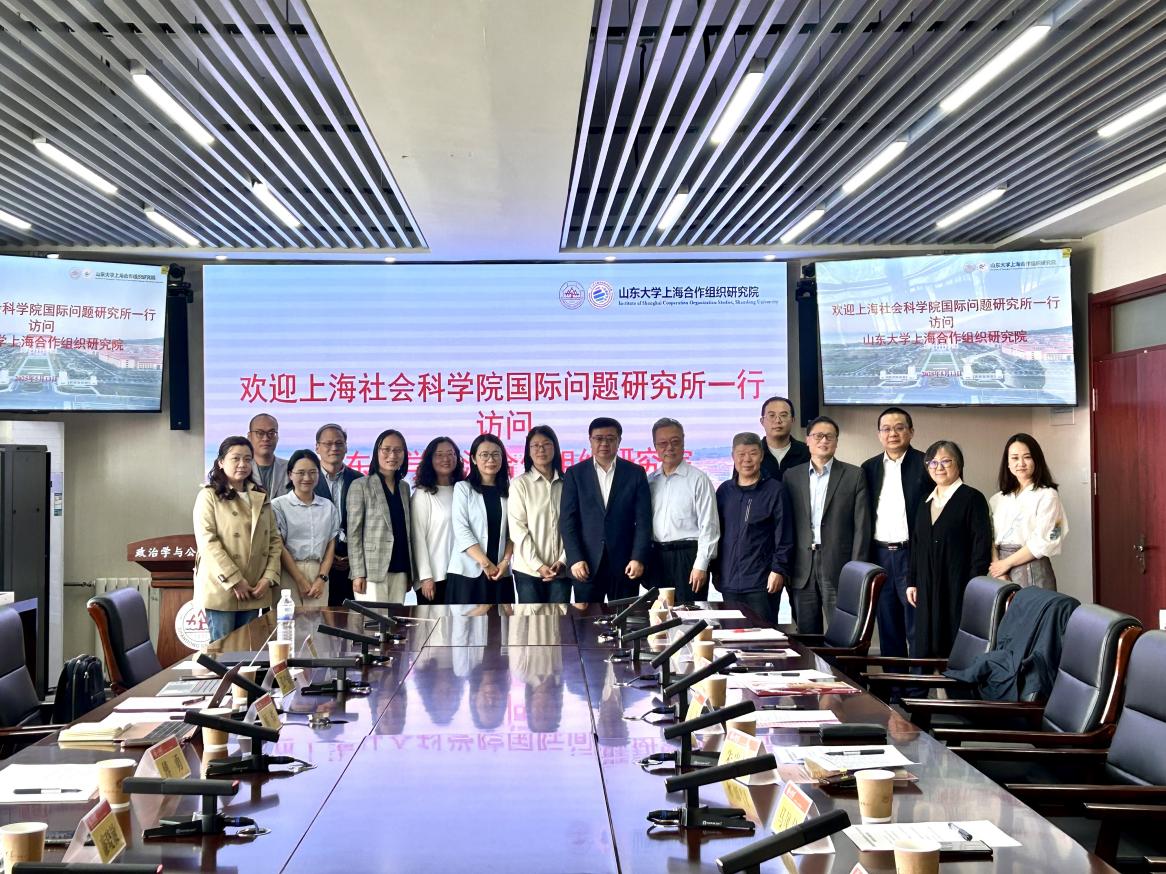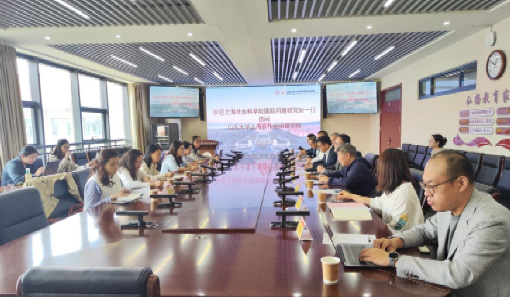On the morning of May 13, a delegation from the Institute of International Studies (IIS), Shanghai Academy of Social Sciences (SASS), including Gu Wei, Executive Director of the Eurasian Studies Division; Fu Yong, Editor-in-Chief of Journal of International Relations and Research Fellow of the Eurasian Studies Division; Lian Xiaomin and Zhang Yanjun, Assistant Research Fellows of the IIS, SASS; and Wei Wei and Long Fei, editors from Journal of International Relations, visited the School of Political Science and Public Administration (PSPA) of Shandong University and held discussions with faculty members of the Institute of SCO Studies of Shandong University. Participants from Shandong University included Ma Ben, Dean of PSPA and Director of the Institute of SCO Studies; Zhu Guichang, Vice Dean of PSPA; Ma Fengshu, Guo Qingcun, Zhang Shulan, and Zhao Yujia, Vice Directors of the Institute of SCO Studies; Ma Rongjiu, Professor of PSPA; and Wang Xinxi, Assistant Research Fellow of PSPA. Sheng Li, Executive Director of the Institute of SCO Studies, chaired the meeting.

The discussions primarily focused on scientific research collaboration, academic exchanges, and talent development between the Institute of SCO Studies and the IIS, SASS.
At the meeting, Ma Ben first introduced the history, disciplinary development, faculty composition, international exchanges, and talent cultivation efforts of PSPA. Sheng Li then outlined the Institute of SCO Studies’ core positioning in interdisciplinary integration, its goals of serving national and regional development, key research domains, diverse expert teams, academic achievements, and plans to support institutional development and strengthen university-enterprise technological collaboration.
Gu Wei provided an overview of the IIS, SASS, including its development trajectory, organizational structure, faculty strength, research priorities, academic outputs, and project accomplishments. Fu Yong subsequently introduced Journal of International Relations, detailing its founding history, editorial focus, research scope, academic influence, and distinctive features, while expressing anticipation for future collaborative research endeavors.
During the subsequent exchange session, participants engaged in discussions on challenges facing regional and country studies, including limited investment and attention from SCO member states, the need for innovative consultation mechanisms following India and Pakistan’s accession, the disconnect between theoretical research and policy demands, the urgent need to strengthen fieldwork and database development, and talent gaps in niche research areas. Additionally, both sides systematically exchanged views on talent development in regional studies, the social responsibilities of universities and think tanks, university-enterprise engagement, and academic journal collaborations.

The primary objective of this symposium was to expand communication channels between the two institutions and lay a solid foundation for future cooperation. Both sides reached a consensus to leverage this exchange as a pivotal opportunity to deepen collaboration in key areas such as disciplinary development and talent recruitment, jointly promoting the robust advancement of relevant fields.
